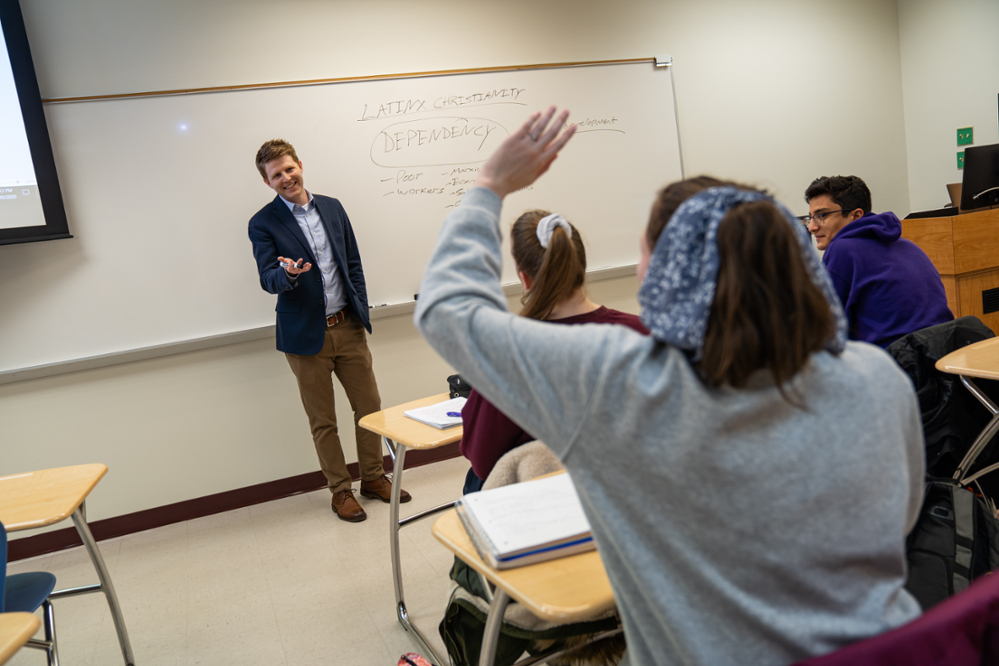
We live in an age of rapid globalization - the transformation of the world into a single, highly interconnected unity. Our students travel extensively throughout the world. Their friends, neighbors, work colleagues and perhaps even relatives include people from many countries and cultures. In such a world, we are all in the process of learning as fast as we can how to relate to people who differ from us in significant ways.
JMU's Global Religions and Cultures program plays a unique role in preparing students to be educated and enlightened citizens because a religious studies education helps us deal with "otherness," which is a task inherent to the future of the world in this era of globalization. The theologian Paul Tillich demonstrated that religion is culture's "dimension of depth": the foundation of the way most people think and feel. Teaching religious studies is a direct way to help students understand the diverse cultures of the world in which they live, not to mention the diverse peoples and worldviews that make up today's society in the United States.
Basic questions of human existence are addressed by religion: the meaning and purpose of life; the presence of death, sorrow and suffering; the existence and nature of divine beings; the contours of morality and justice; and the possibilities of transcendence, salvation, peace, and liberation for individuals and communities. Students with a major in Global Religions and Cultures, whatever their career goals may be, will find themselves equipped to navigate skillfully in our culturally pluralistic, diverse world with its many approaches to these essential questions.
The Global Religions and Cultures program at JMU has a global focus. Students majoring in Global Religions and Cultures gain a broad knowledge of the major religions of the world from geographical, historical, literary, cultural, ethical, and political perspectives. Many choose to focus their advanced courses in one or two religious traditions, while others pursue interests in comparative topics like the environment, race, gender, or medicine. In our classrooms, we observe religion as a human phenomenon that evolves over time and adapts to new contexts and challenges. Students of diverse religious commitments, or no religious commitments, thrive in our courses.
